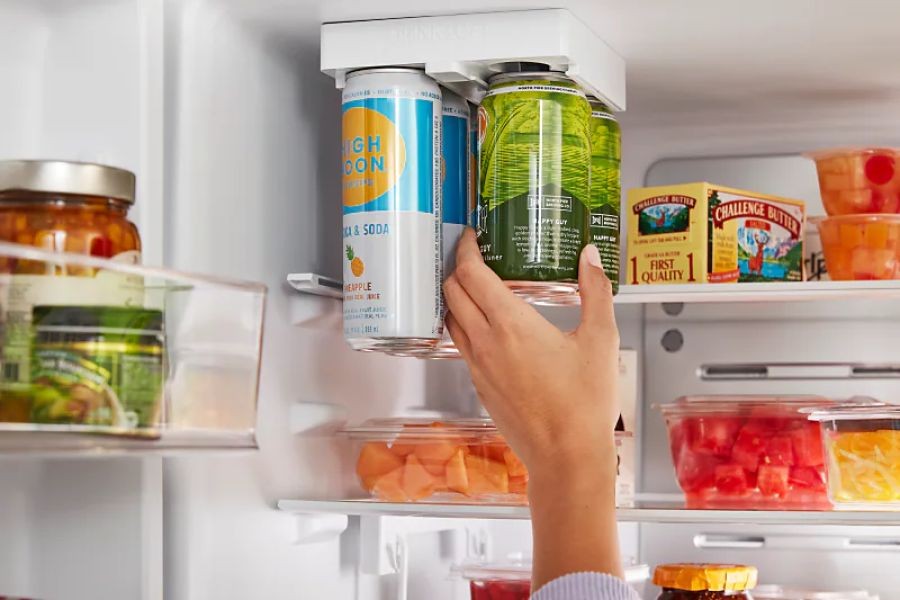When it comes to pizza, Australians are spoilt for choice. Yet the debate between pre-made and homemade pizza dough remains a hot topic, especially among those who savor the nuances of flavor and texture. This discourse is not merely about culinary preferences; it also touches upon broader implications, including economic and environmental considerations, which are highly relevant in the Australian context.
The Economic and Environmental Context in Australia
In Australia, the food and beverage industry contributes significantly to the economy, accounting for around 27% of the manufacturing sector's output (Source: Australian Bureau of Statistics). The choice between pre-made and homemade pizza dough impacts not only individual consumers but also the broader industry, which is under pressure to adopt sustainable practices.
Pre-made pizza doughs are often mass-produced, which can lead to economies of scale, reducing costs for both producers and consumers. However, this mass production can also result in increased carbon emissions, a concern as Australia aims to meet its Net Zero targets by 2050. Conversely, homemade dough, while potentially more labor-intensive and time-consuming, allows individuals to source local and organic ingredients, thereby supporting local farmers and reducing carbon footprints.
Flavor and Texture: A Comparative Analysis
The primary argument for homemade dough is its superior taste and texture. Homemade dough allows for greater control over ingredients, leading to a fresher, more authentic taste. By adjusting the fermentation time, hydration levels, and choice of flour, home bakers can customize their dough to achieve a variety of textures, from the classic Neapolitan chewiness to the crispy thin crust popular in Roman-style pizzas.
On the other hand, pre-made doughs offer convenience, a crucial factor for busy Australians juggling work and family commitments. These doughs are designed to perform consistently, which is a significant advantage for those who may not have the time or expertise to experiment with homemade recipes.
Case Study: The Rise of Artisan Pizzerias in Australia
In recent years, there has been a noticeable increase in artisan pizzerias across Australia, emphasizing the quality of homemade dough. For instance, Melbourne-based pizzeria 400 Gradi has gained international acclaim, being named the world's best pizzeria outside of Italy in 2018. This success is largely attributed to their commitment to traditional dough-making techniques, including long fermentation periods and use of high-quality flour.
The popularity of such establishments highlights a growing consumer preference for quality and authenticity over convenience. This trend is supported by data from IBISWorld, which indicates a 5.5% annual growth in revenue for the pizza industry in Australia over the past five years, driven by demand for premium and gourmet offerings.
Pros and Cons: Pre-Made vs. Homemade Dough
✅ Pros of Pre-Made Dough:
- Convenience: Quick and easy, saving time for busy individuals.
- Consistency: Offers a predictable outcome, reducing the chance of error.
- Cost-Effective: Often cheaper when bought in bulk.
❌ Cons of Pre-Made Dough:
- Limited Customization: Less control over ingredients and processes.
- Environmental Impact: Potentially higher carbon footprint due to mass production.
- Preservatives: May contain additives to extend shelf life, impacting taste.
✅ Pros of Homemade Dough:
- Quality: Superior taste and texture due to fresh ingredients.
- Customization: Adjust recipes for dietary needs and preferences.
- Environmental Benefits: Supports local farmers and reduces carbon emissions.
❌ Cons of Homemade Dough:
- Time-Consuming: Requires planning and preparation.
- Skill Required: Needs a basic understanding of dough-making techniques.
- Cost: High-quality ingredients can be more expensive.
Common Myths and Mistakes
Myth: "Pre-made dough is always inferior in taste."
Reality: Many high-quality pre-made doughs are made with premium ingredients, offering excellent flavor profiles. The key is to choose brands that prioritize quality over cost.
Myth: "Making dough at home is too difficult."
Reality: With the plethora of online tutorials and guides, homemade dough-making is more accessible than ever. Many Australians are turning to virtual cooking classes to hone their skills, leading to an increase in home baking (Source: ABS, 2023).
Myth: "Homemade dough is always healthier."
Reality: The healthiness of dough depends on the ingredients used. While homemade dough can be healthier, it can also be calorie-dense if not made with nutritious ingredients.
Future Trends and Predictions
Looking ahead, the preference for homemade or artisan pizzas is likely to grow, driven by a continued focus on sustainability and health consciousness. As Australians become more aware of their environmental impact, the demand for locally-sourced, minimally processed foods will continue to rise. Additionally, innovations in food technology may lead to the development of pre-made doughs that mimic the quality of homemade versions, combining convenience with premium quality.
By 2030, it is predicted that 50% of all food products in Australia will be sourced locally, aligning with global sustainability goals (Source: CSIRO). This shift will significantly impact the pizza industry, as consumers increasingly prioritize environmental considerations in their purchasing decisions.
Conclusion
The choice between pre-made and homemade pizza dough ultimately depends on individual preferences and priorities. For those who value convenience and consistency, pre-made dough offers a practical solution. However, for those who prioritize flavor, texture, and sustainability, homemade dough is the preferred option. As Australia moves towards a more sustainable future, the trend towards homemade and artisan pizzas is likely to continue, shaping the industry in exciting new ways.
What’s your take on the pre-made vs. homemade debate? Share your thoughts and experiences below!
People Also Ask (FAQ)
How does the choice between pre-made and homemade dough impact Australia's economy? The choice influences local economies by affecting demand for locally-sourced ingredients versus mass-produced goods, impacting both sustainability and economic growth.
What are the biggest misconceptions about homemade pizza dough? A common myth is that homemade dough is always healthier, but its healthiness depends on the ingredients used. High-quality ingredients are essential for a healthier option.
Who benefits the most from using homemade pizza dough? Homemade dough benefits local farmers, environmentally conscious consumers, and those seeking a customized culinary experience, supporting local economies and reducing carbon footprints.
Related Search Queries
- Best pre-made pizza dough in Australia
- Homemade pizza dough recipes easy
- Artisan pizza trends in Australia
- Environmental impact of homemade pizza
- Pizza industry growth in Australia
- How to make pizza dough at home
- Health benefits of homemade pizza
- Convenience vs. quality in pizza dough
- Local ingredients for pizza in Australia
- Pizza dough buying guide Australia































